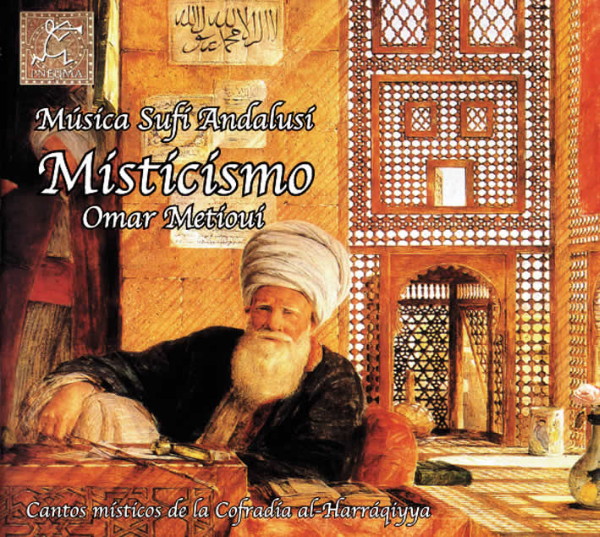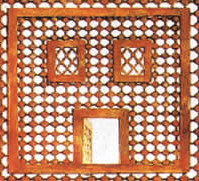
medieval.org
pneumapaniagua.es
Pneuma PN-200
p. 1998
Tánger & Urueña (Valladolid)

medieval.org
pneumapaniagua.es
Pneuma PN-200
p. 1998
Tánger & Urueña (Valladolid)
I. Cantos místicos de la
cofradía al-Harráqiyya
01 - [5:31]
1. Kullí f-wyúdak · ¡Ay señor
mío!
2. Sqáni hádh l-mdám 'ushsháqí
· Sé humilde ante tu Señor
02 - al-HARRÁQ. (muwwál) Wa ahsanu
ahwálí · Poner mi confianza
[6:15]
03 - [5:31]
1. Turíd yáa fuqayyar · Quieres, pobrecillo
2. 'An hawakum kayfa ansarifu · Cómo podría
renunciar a amaros
3. Ya 'uhayla l-himá · Gentes del Sagrado
4. (mutaqárib) Allá má sallí · Señor
nuestro bendice al Escogido [6:26]
II. as-Samá‘
04 - Al-Ádán · Llamada del almuédano de
la oración [3:07]
05 - CORÁN. Súrat al-Baqara 2. 285-286 [1:33]
06 - Al-Mawlidiyya · Conmemoración del nacimiento del
Profeta Muhammad [15:23]
07 - al-SHUSTARÍ. Yá bi-l-wisál · Concedió
la Unión [5:57]
08 - al-HARRÁQ. Atáriki sáhira
l-layálí (al-Harrâq) · ¡Ay
tú, que así me dejas! [5:09]
09 - al-HARRÁQ. (muwwál) Buh bi-l-garámi
· Revela tu pasión [6:23]
COFRADÍA AL-SHUSTARÍ
Omar Metioui
voces solistas:
I. Mohamed Aroussi
II. Mohamed Berraq, Hasan Ajyar y Abdesselam El Amrani

Although the music is religious in nature, the Sufi brotherhood it
comes from (the Cofradia al-Harraqiyya) was apparently liberal in their
allowance of instruments in music (where many Sufi orders rely only on
vocal and percussion music). The Cofradia Al-Shustari, named for an
11th century mystic poet from Granada, uses ney, violin, rebab
(fiddle), and percussion in addition to choral, solo and call and
response vocals. At times, the music is more meditative, but at other
times it really lifts off into an extremely heterophonous ecstasy, with
even the singers only loosely singing the same thing. At times, it can
be a little overwhelming, so I have to be in the appropriate mood to be
able to withstand the force of Al-Shustari, but I really do like it,
and, like everything I’ve heard him on, Metioui’s oud
playing is outstanding. He isn’t as warmly recorded here as he is
on the Sony discs, but you still get a sense of the atmosphere of the
occasion, and you never have trouble hearing Metioui as he guides the
ensemble.
Metioui’s work is obviously more than merely recreating ancient
music, like a Western early music group might do, exclusively for a
concert audience. It still has powerful spiritual overtones, and is
drawn from the living tradition of Andalusian music as it survives in
Tetuan in Morocco. The second half of the disc is devoted the Sama, a
Sufi religious ceremony (the best known version of the Sama in the west
is the Mevlevi ritual with its whirling dervishes) which in this case
appropriates Andalusi rhythms and modes. It is much more sober than the
ecstatic first half of the disc, but wonderful nonetheless.
by Tom Chandler / Points East, new music from the Near East